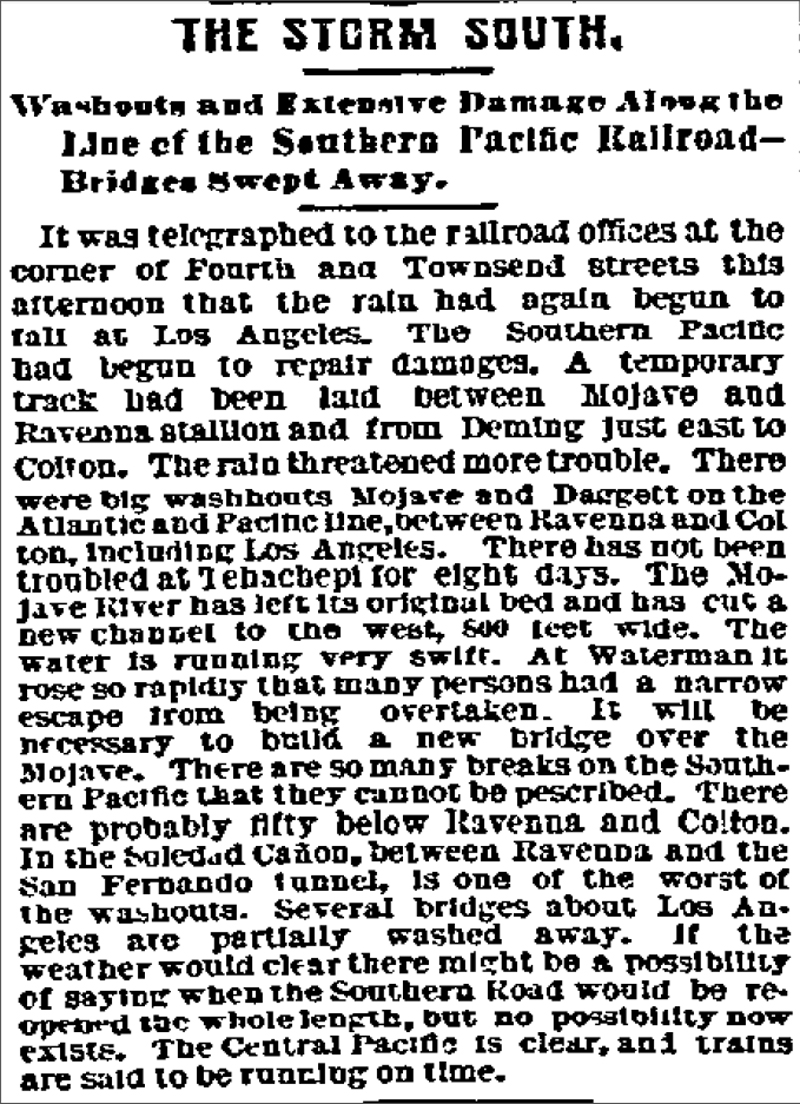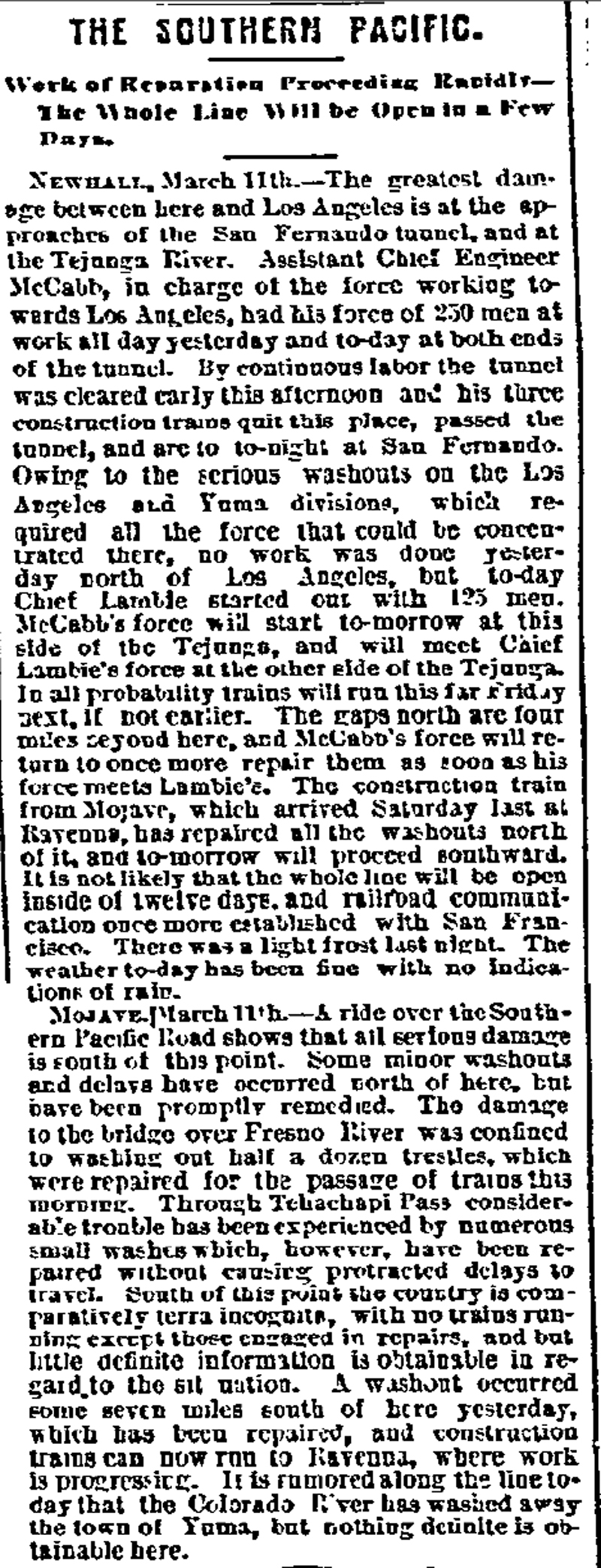|
|
|
The Storm South.
It was telegraphed to the railroad offices at the corner of Fourth and Townsend street this afternoon that the rain had again begun to fall in Los Angeles. The Southern Pacific had begun to repair damages. A temporary track had been laid between Mojave and Ravenna station and from Deming just east to Colton. The rain threatened more trouble. There were big washouts [] Mojave and Daggett on the Atlantic and Pacific line, between Ravenna and Colton, including Los Angeles. There has not been troubled [sic] at Tehachepi for eight days. The Mojave River has left its original bed and has cut a new channel to the west, 800 feet wide. The water is running very swift. At Waterman it rose so rapidly that many persons had a narrow escape from being overtaken. It will be necessary to build a new bridge over the Mojave. There are so many breaks on the Southern Pacific that they cannot be [d]escribed. There are probably fifty below Ravenna and Coltno. In the Soledad Cañon, between Ravenna and the San Fernando tunnel, is one of the worst of the washouts. Several bridges about Los Angeles are partially washed away. If the weather would clear there might be a possibility of saying when the Southern Road would be reopened the whole length, but no possibility now exists. The Central Pacific is clear, and trains are said to be running on time.
The Southern Pacific.
Newhall, March 11th. — The greatest damage between here and Los Angeles is at the approaches of the San Fernando tunnel, and at the Tejunga River. Assistant Chief Engineer McCabb, in charge of the force working towards Los Angeles, had his force of 250 men at work all day yesterday and to-day at both ends of the tunnel. By continuous labor the tunnel was cleared early this afternoon and his three construction trains quit this place, passed the tunnel, and are to-night at San Fernando. Owing to the serious washouts on the Los Angeles and Yuma divisions, which required all the force that could be concentrated there, no work was done yesterday north of Los Angeles, but to-day Chief Lambie started out with 125 men. McCabb's force will start to-morrow at this side of the Tejunga, and will meet Chief Lambie's force at the other side of the Tejunga. In all probability trains will run this far Friday next, if not earlier. The gaps north are four miles beyond here, and McCabb's force will return to once more repair them as soon as his force meets Lambie's. The construction train from Mojave, which arrived Saturday last at Ravenna, has repaired all the washouts north of it, and to-morrow will proceed southward. It is not likely that the whole line will be open inside of twelve days, and railroad communication once more established with San Francisco. There was a light frost last night. The weather to-day has been fine with no indications of rain. Mojave, March 11th. — A ride over the Southern Pacific Road shows that all serious damage is south of this point. Some minor washouts and delays have occurred north of here, but have been promptly remedied. The damage to the bridge over Fresno River was confined to washing out half a dozen trestles, which were repaired for the passage of trains this morning. Through Tehachapi Pass considerable trouble has been experienced by numerous small washes which, however, have been repaired without causing protracted delays to travel. South of this point the country is comparatively terra incognita, with no trains running except those engaged in repairs, and but little definite information is obtainable in regard to the situation. A washout occurred some seven miles south of here yesterday, which has been repaired, and construction trains can now run to Ravenna, where work is progressing. It is rumored along the line today that the Colorado River has washed away the town of Yuma, but nothing definite is obtainable here.
|
Southern Pacific Tunnels Through. Story by Alan Pollack
Storm Damage 1884
C. Watkins Stereoview ~1877
1910
Postcard ~1910
Approach 1952
ATSF Freight Train ~1954
Tehachapi Tunnel No. 10, ~1878
|
The site owner makes no assertions as to ownership of any original copyrights to digitized images. However, these images are intended for Personal or Research use only. Any other kind of use, including but not limited to commercial or scholarly publication in any medium or format, public exhibition, or use online or in a web site, may be subject to additional restrictions including but not limited to the copyrights held by parties other than the site owner. USERS ARE SOLELY RESPONSIBLE for determining the existence of such rights and for obtaining any permissions and/or paying associated fees necessary for the proposed use.








